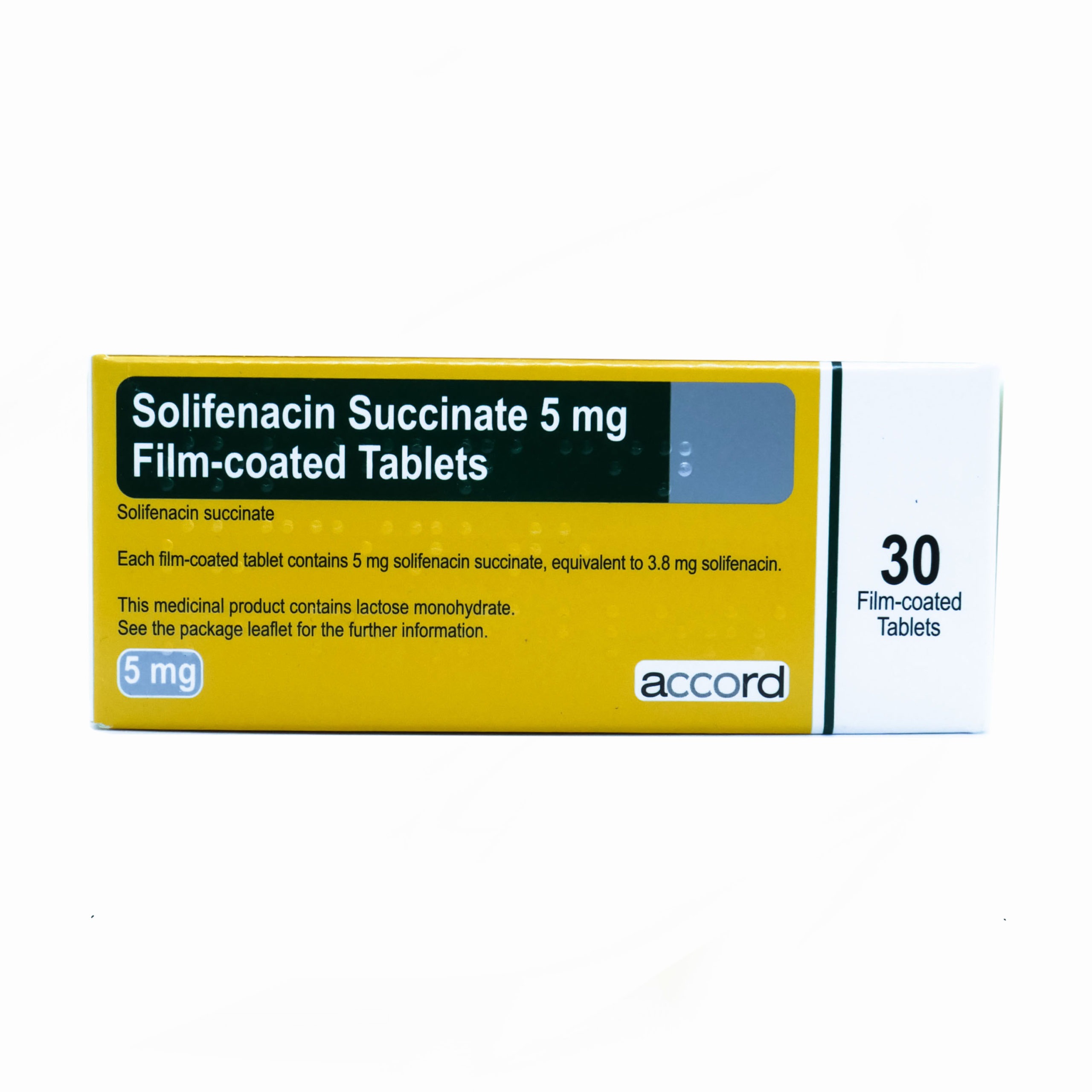Solifenacin

Fastest delivery:
Order by 12:00am
-

Free delivery over £50
Fast, tracked delivery from £2.95. Arrives as quickly as the next working day in discreet packaging.
-

100% UK-based pharmacy
Our team of doctors and prescribers, and our support staff, are all UK-based.
-

Free support and advice
We're on hand to offer free support and advice by email and telephone (Mon - Fri 08:30 - 17:00).
-

We’re rated 4.9 out of 5
based on over 17,000 reviews collected on Google and Reviews.io.
Description
What Is Solifenacin?
Solifenacin is used to treat an overactive bladder condition that causes urinating often or urine leakage. Overactive bladder may be caused by a neurological disorder such as MS or spinal cord injury. Solifenacin is an oral medicine that can be used to treat incontinence caused by prostate cancer. It comes as a tablet and in liquid form. It helps reduce urinary urgency, frequency, and leakage (urge incontinence) and is commonly prescribed to people with OAB who experience frequent, sudden urges to urinate.
How Does Solifenacin Work?
Solifenacin belongs to the class of medications known as antispasmodics. It works by relaxing the muscles in the bladder. The drug stops sudden bladder muscle contractions and increases the volume of urine that your bladder can hold. Solifenacin helps reduce leaking of urine, frequent trips to the bathroom and the feelings of urgently going for a wee. This results in better bladder control and fewer urinary accidents.
Warnings
Solifenacin is unsuitable for you if you:
- Have untreated or uncontrolled narrow-angle glaucoma.
- Have gastrointestinal obstructive disorders.
- Have severe renal impairment
- Are unable to urinate.
- Have liver disease.
- Have kidney disease.
Directions
Follow the directions of a medical professional and make sure you read the instructions provided.
- Solifenacin tablets should be taken whole with a full glass of water.
- You can take it with or without food.
- If using to pral suspension (liquid), shake before you measure a dose. Use the dosing syringe provided, or use a medicine dose-measuring device.
- Store Solifenacin in the original container at room temperature, away from moisture and heat.
- Keep the medicine bottle tightly closed when not in use, and throw away the remaining tablets after 28 days from the day you opened the bottle.
Ingredients
Each film-coated tablet contains the active ingredient 10 mg of Solifenacin succinate.
Each film-coated tablet contains also contains 127.85 mg lactose monohydrate, Maize starch, Hypromellose (5 cp), Silica colloidal anhydrous, Magnesium stearate. The tablet coating is made up of Hypromellose (6 cp), Macrogol (PEG 4000), Titanium dioxide (E 171), Talc, Red iron oxide (E172).
Side Effects
The common side effects when using Solifenacin are:
- blurred vision
- dry mouth, dry eyes
- painful urination
- constipation
- heatstroke
The more severe side effects are listed below. Stop using Solifenacin and call your doctor immediately if you experience:
- severe stomach pain, or constipation for three days or longer
- pain or burning when you urinate
- confusion, drowsiness, hallucinations
- vision changes or seeing halos around lights
- dehydration
Seek medical help if serious side effects occur.
FAQs
1. How should I take Solifenacin?
Take one tablet daily, with or without food. Swallow it whole with water.
2. How long does it take to work?
Symptom improvement may begin within a few days, but full effects can take up to 4-6 weeks.
3. Can I drink alcohol while taking Solifenacin?
Drinking alcohol may increase the side effects like drowsiness or dizziness, so it is advised to limit alcohol consumption.
4. Can I take Solifenacin if I'm pregnant?
Consult your doctor before using Solifenacin during pregnancy or breastfeeding.
5. What if I miss a dose?
Take the missed dose as soon as you remember unless it’s almost time for the next dose. Do not take a double dose.


